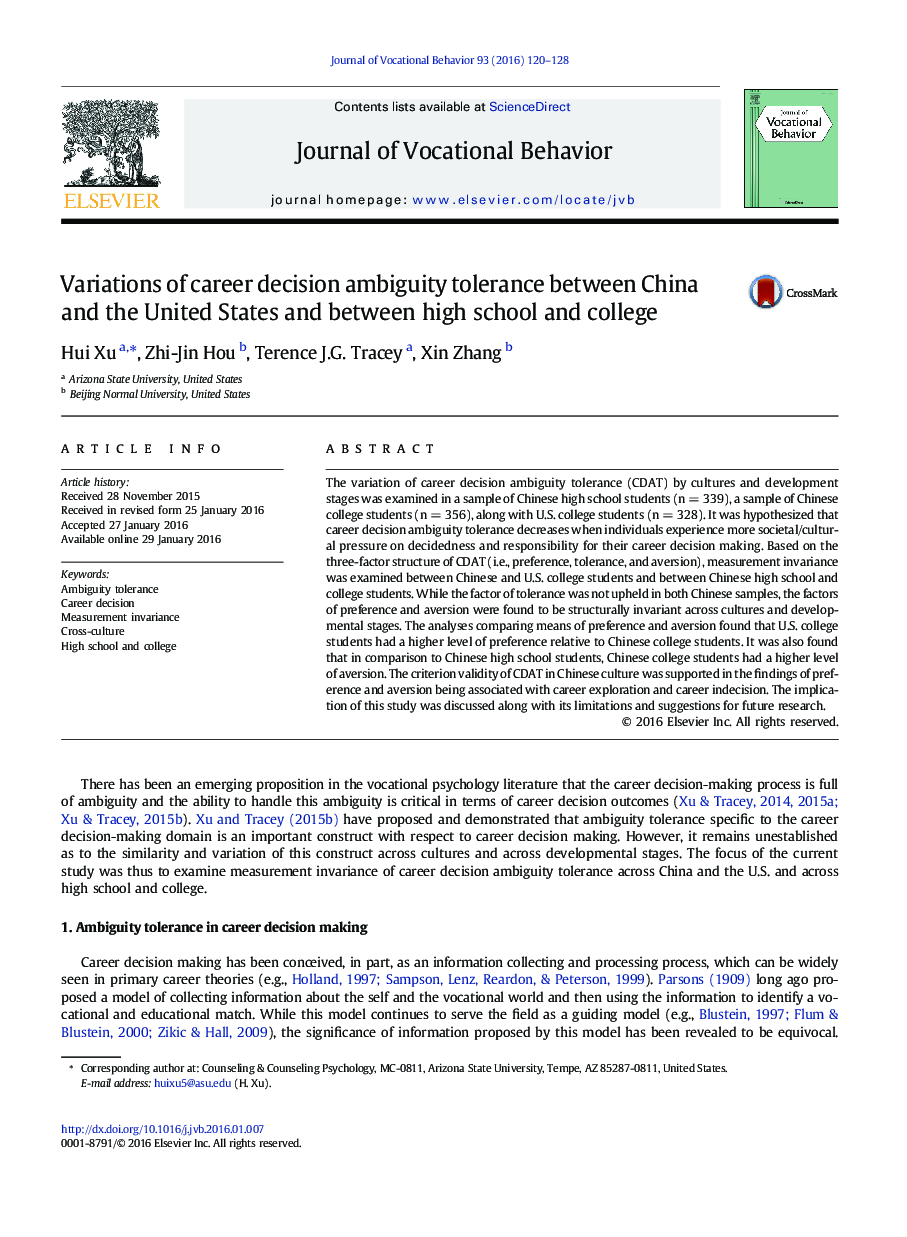| Article ID | Journal | Published Year | Pages | File Type |
|---|---|---|---|---|
| 7247597 | Journal of Vocational Behavior | 2016 | 9 Pages |
Abstract
The variation of career decision ambiguity tolerance (CDAT) by cultures and development stages was examined in a sample of Chinese high school students (n = 339), a sample of Chinese college students (n = 356), along with U.S. college students (n = 328). It was hypothesized that career decision ambiguity tolerance decreases when individuals experience more societal/cultural pressure on decidedness and responsibility for their career decision making. Based on the three-factor structure of CDAT (i.e., preference, tolerance, and aversion), measurement invariance was examined between Chinese and U.S. college students and between Chinese high school and college students. While the factor of tolerance was not upheld in both Chinese samples, the factors of preference and aversion were found to be structurally invariant across cultures and developmental stages. The analyses comparing means of preference and aversion found that U.S. college students had a higher level of preference relative to Chinese college students. It was also found that in comparison to Chinese high school students, Chinese college students had a higher level of aversion. The criterion validity of CDAT in Chinese culture was supported in the findings of preference and aversion being associated with career exploration and career indecision. The implication of this study was discussed along with its limitations and suggestions for future research.
Related Topics
Social Sciences and Humanities
Business, Management and Accounting
Marketing
Authors
Hui Xu, Zhi-Jin Hou, Terence J.G. Tracey, Xin Zhang,
